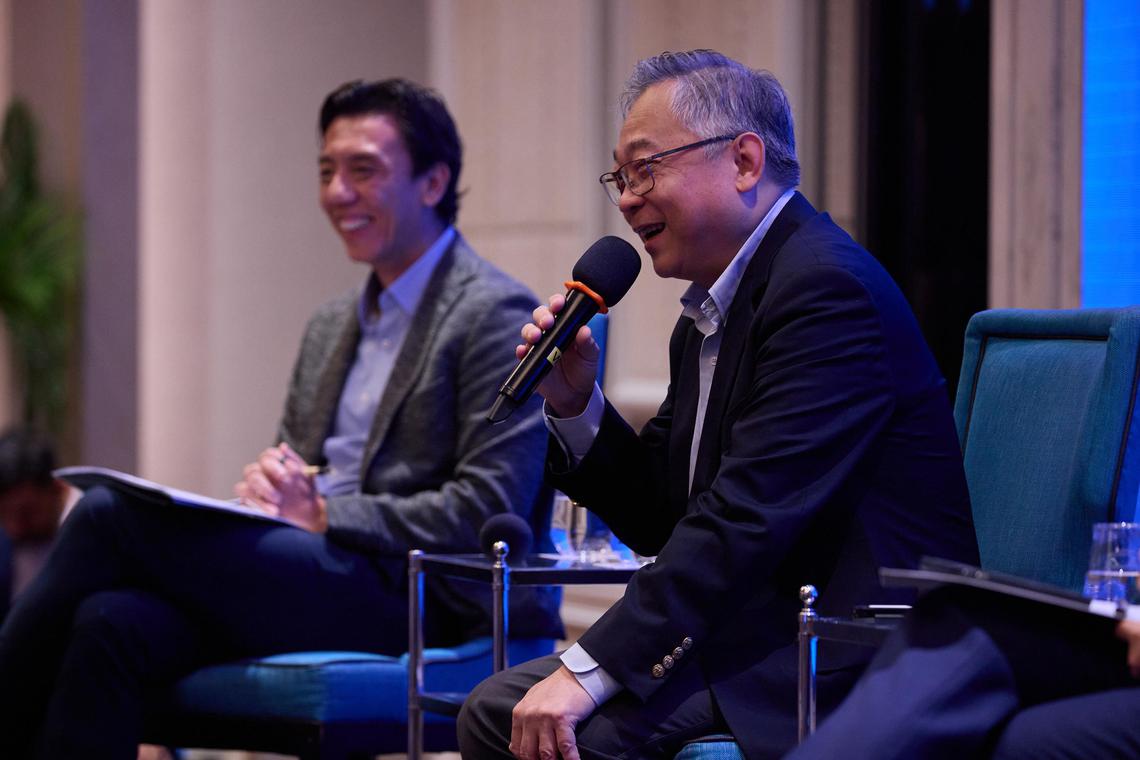SINGAPORE – Companies seeking counsel to navigate an increasingly complicated global trading environment can now tap generative artificial intelligence (Gen AI) to do so.
Launched by the Singapore Business Federation (SBF) on Sept 9, the Trade AI Adviser (TAIA) is said to be the world’s first Gen AI platform dedicated to providing global trade advice.
An in-house SBF initiative, TAlA is geared to simplify complex trade rules and provide guidance on free trade agreements (FTA), tariffs and compliance requirements.
It will also provide practical solutions by leveraging reliable sources and a comprehensive FTA database, enabling businesses to unlock opportunities, maintain compliance and stay competitive, SBF said in a statement.
TAIA’s launch was announced on the sidelines of a seminar on navigating US tariffs at Orchard Hotel Singapore.
At a fireside discussion during the seminar, Deputy Prime Minister and Minister for Trade and Industry Gan Kim Yong noted that
the 10 per cent tariff on Singapore exports to the US
will negatively impact the Republic’s economy despite being lower than the tariffs faced by most other countries.
For one thing, additional tariffs of pharmaceuticals and semiconductors – which together account for about 40 per cent of Singapore’s exports to the US –
could still be on the horizon
, DPM Gan said.
He also discussed the secondary impacts of US tariffs on Singapore’s export of parts, components and materials made by chipmakers, pharmaceutical companies and precision engineering firms, which are used in finished products.
If US tariffs affect the demand for those goods, then demand for Singapore’s exports will also ease.
“Although we have just a 10 per cent tariff, many of our key trading partners have a much higher tariff, and when they are affected, our exports to them will also be affected,” he said.
Investment flows into Singapore could also take a hit as the US shifts its manufacturing needs onshore, DPM Gan said.
“Many countries have made commitments to the US, whether to purchase more or to invest more in the US, and that they may do so at the expense of their existing partners, which may include Singapore.
“Therefore, significant uncertainties remain. It’s important for us to continue to monitor and watch these developments and be ready to respond,” he said.
DPM Gan advised companies not to breach the rules of origin in any attempt to mitigate the impact of the US tariffs, adding that firms should stay clear of tactics that could be deemed as trade diversion.
This is because of recently introduced US transshipment rules, which penalise the evasion of higher tariffs by re-routing goods through a third country with lower tariffs. This can result in penalties of up to 40 per cent in additional duties.
Acting Minister for Transport and Senior Minister of State for Finance Jeffrey Siow noted that while the Government is looking at strategies to navigate the shifting global economic environment, companies should do so too.
“You also have to review your strategies, because the world has changed, particularly for those of you who have export businesses or businesses overseas,” he said.
At the event, SBF, which has a membership base of about 32,000 companies, also announced new partnerships with six organisations – DBS Bank, DHL Express, Pacific International Lines, PwC Singapore, Rajah & Tann, and Temasek Foundation.
The partners will support its efforts to deepen regional trade and investment connectivity, build enterprise capabilities, and co-develop practical solutions for businesses navigating global economic turbulence.
SBF chairman S. S. Teo noted that the association is “creating an ecosystem where businesses, policymakers and thought leaders can experiment, exchange ideas and co-develop solutions”.
“This initiative will help companies move beyond reactive risk management towards building capabilities that position them for long-term success in the dynamic global trade landscape.”
Singapore economyAI/artificial intelligenceTradeTrade warTariffs

